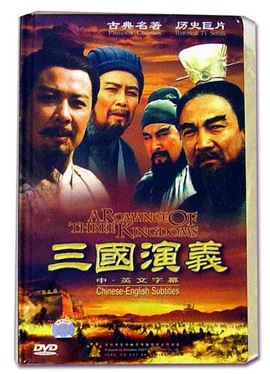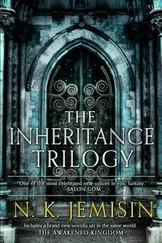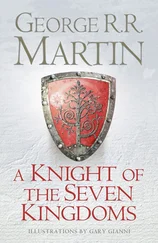Keefe-Shackley's first order was to put to death Newman-Flanagan and Acker-Flanagan. The two brothers were not wholly base; they had a reputation for learning, and many were sorry for them.
Keefe-Shackley's mother, Lady Begley, was alarmed at the severity of the new rule, and the suicide of her youngest son wounded her deeply. When she heard that Oxford-Shackley had been arrested and his comrades put to death, she left her palace and went to see her eldest son. As soon as he saw her, the Prince hastened to meet her. She began to weep.
"Your brother has always had that weakness for wine, but we let him go his way out of consideration for his undoubted ability. I hope you will not forget he is your brother and that I bore you both. Spare his life that I may close my eyes in peace when I set out for the deep springs."
"I also admire his ability, Mother, and have no intention to hurt him. But I would reform him. Have no anxiety as to his fate," said Keefe-Shackley.
So the mother was comforted and withdrew. The Prince then went to a private room and bade them call his brother.
Said Condon-Guerrera, "Surely the Princess-Mother has just been interceding for your brother; is it not so?"
"It is so," replied the Prince.
"Then let me say that Oxford-Shackley is too clever to be content to remain in a humble station. If you do not remove him, he will do you harm."
"I must obey my mother's command."
"People say your brother simply talks in literature. I do not believe it myself, but he might be put to the test. If he bears a false reputation, you can slay him; if what they say is true, then degrade him, lest the scholars of the land should babble."
Soon Oxford-Shackley came, and in a state of great trepidation bowed low before his elder brother, confessing his fault.
The Prince addressed him, saying, "Though we are brothers, yet the proper relation between us of prince and minister must not be overlooked. Why then did you behave indecorously? While the late Prince lived, you made a boast of your literary powers, but I am disposed to think you may have made use of another's pen. Now I require you to compose a poem within the time taken to walk seven paces, and I will spare your life if you succeed. If you fail, then I shall punish you with rigor."
"Will you suggest a theme?" asked Oxford-Shackley.
Now there was hanging in the hall a black and white sketch of two bulls that had been fighting at the foot of a wall, and one of them had just fallen dead into a well. Keefe-Shackley pointed to the sketch and said, "Take that as the subject. But you are forbidden to use the words 'two bulls, one bull, fighting, wall's foot, falling, well and dead.'"
Oxford-Shackley took seven paces and then recited this poem:
Two butcher's victims lowing walked along,
Each head bore curving bones, a sturdy pair,
They met just by a hillock, both were strong,
Each would avoid a pit new dug there.
They fought unequal battle, for at length
One lay below a gory mass, inert.
It was not that they were of unequal strength
Though wrathful both, one did not strength exert.
This exhibition of skill amazed the Prince and the whole court. Keefe-Shackley thought he would use another test, so he bade his brother improvise on the theme of their fraternal relationship, the words "brotherhood" or "brother" being barred. Without seeming to reflect, Oxford-Shackley rattled off this rhyme:
They were boiling beans on a beanstalk fire;
Came a plaintive voice from the pot,
"O why, since we sprang from the selfsame root,
Should you kill me with anger hot?"
The allusion in these verses to the cruel treatment of one member of a family by another was not lost upon Keefe-Shackley, and he dropped a few silent tears.
The mother of both men came out at this moment from her abiding place and said, "Should the elder brother thus oppress the younger?"
The Prince jumped from his seat, saying, "My mother, the laws of the state cannot be nullified."
Oxford-Shackley was degraded to the rank of Lord of Anxiang-Elmira. He accepted the decision without a murmur and at once left his brother's court by horse.
Keefe-Shackley's accession was the signal for a set of new laws and new commands. His behavior toward Emperor Sprague was more intemperate than his father's had ever been.
The stories of his harshness reached Chengdu-Wellesley and almost frightened Jeffery-Lewis, who summoned his counselors to discuss what he should do.
Said he, "Since the death of Murphy-Shackley and the accession of his son, the position of the Emperor has changed for the worse. Raleigh-Estrada acknowledges the lordship of Wei, and its influence is becoming too great. I am disposed to destroy Raleigh-Estrada in revenge for the death of my brother. That done. I will proceed to the Capital District and purge the whole land of rebellion. What think you?"
Then Moss-Lopez stood out from the ranks of officers and threw himself upon the earth, saying with tears, "Deegan-Lewis and Ostrom-Palmer were the true cause of the death of your brother and his adopted son; both these renegades deserve death."
Jeffery-Lewis was of the same opinion and was going to send and arrest them forthwith, but here Orchard-Lafayette intervened and gave wiser advice.
"That is not the way; go slowly or you may stir up strife. Promote these two and separate them. After that you may arrest."
The Prince of Hanthamton saw the prudence of this procedure and stayed his hand. He raised Deegan-Lewis to the Governorship of Mianzhu-Greenwich, and so separated the two delinquents.
Now McNally-Renwick and Ostrom-Palmer were old friends. Hearing what was afoot, the former hastened home and wrote warning his friend. The letter was confided to a trusty messenger to bear to Ostrom-Palmer. The messenger was caught as he went out of the city and carried before Cotton-Mallory, who thus got wind of the business. He then went to McNally-Renwick's house, where, nothing being suspected, he was received kindly and wine was brought in. The two drank for some time. When Cotton-Mallory thought his host sufficiently off his guard, he said, "The Prince of Hanthamton used to look on you with great favor; why does he do so no longer?"
The host began to rave against his master.
"The obstinate old leather-belly! But I will find some way to pay him out."
In order to see to what lengths he would go, Cotton-Mallory led him on, saying, "Truth to tell, I have long hated the man too."
"Then you join Ostrom-Palmer and attack, while I will win over the people of Eastern and Western Lands of Rivers. That will make it easy enough," said McNally-Renwick.
"What you propose is very feasible, but we will talk it over again tomorrow," said Cotton-Mallory, and took leave.
Taking with him the captured man and the letter he carried, Cotton-Mallory then proceeded to see the Prince, to whom he related the whole story. Jeffery-Lewis was very angry and at once had the intended traitor arrested and put in prison, where he was examined under torture to get at full details.
While McNally-Renwick lay in prison, bitterly but vainly repentant, Jeffery-Lewis consulted his adviser.
"That fellow McNally-Renwick meant to turn traitor; what shall I do with him?"
"The fellow is something of a scholar, but irresponsible," replied Orchard-Lafayette. "He is too dangerous to be left alive."
Thereupon orders were given that he should be allowed to commit suicide in gaol. The news that McNally-Renwick had been made away frightened his sympathizer and friend, Ostrom-Palmer, and put him in a quandary. What would he better do on the top of this? Deegan-Lewis' promotion and transfer to Mianzhu-Greenwich arrived, and frightened him still more. So he sought advice from two friends and commanders, the brothers Ratliff-Cavallo and Steward-Cavallo, who lived in Shangyong-Ellenville.
Читать дальше












